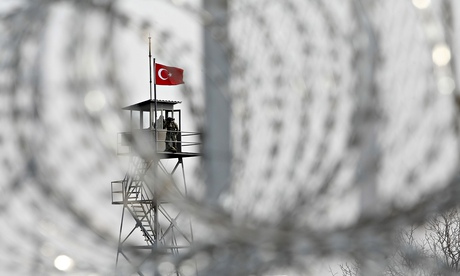Posted by keeptalkinggreece in Very Mix
An incredible case of fraud and money laundering has been revealed after 20 months of police investigation. A Greek Non Governmental Organization (NGO) established with the purpose of carrying out de-mining projects in several countries has received a total of 9 million euro in public money and used the money in ways violating the NGO-funding laws.
According to Greek police, in the period between 2000 and 2004, the NGO has received some nine million euro from the International Development Cooperation Agency (Hellenic Aid) of the Greek Foreign Ministry. but with several tricks the money allegedly landed for the personal benefits of the people involved.
Involved in the case are the chairman and mastermind of the NGO – a journalist -, his wife -a former civil servant -, three retired and three active civil servants of the Greek Foreign Ministry.
Depending on their involvement in the case, the suspects will face felony charges for fraud against the Greek Government , for money laundering, , false attestation, breach violation, corruption etc.
The NGO was to carry out eight demining programs in Bosnia & Herzegovina, Lebanon and Iraq.
According to police investigation, the funding of the project was violating the NGO-funding laws, no approval was asked by the Greek embassies in the countries where the demining was to take place, no progress reports were issued, just to name a few of the law violations.
Among others, the police investigation has found that foreign workers at the de-mining projects were ‘donating’ money to the NGO, so that the company would demonstrate covering the project budget by its own means.
Furthermore, NGO assets were used for private purposes, among others for silly simple things like super market shopping, payment of restaurant and parking bills, a luxury car for private use and other things.
According to Greek media, the chairman and his wife were allegedly living a luxury life renting an apartment for 5,000 euro per month, had built a villa on the island of Rhodes and a 7-story building in Ampelokipoi district of Athens. The couple had moved to Cyprus last year.
The chairman has been detained three days ago. (sources: protothema, ing.gr, and others)
“Many Greek non-governmental organizations have long been suspected that they were established only with the purpose to milk the Greek state. Questionable NGOs such as one for “the promotion of the processing of tomatoes in the Ivory Coast” or for “The promotion of Orthodoxy in North Korea” have been established as of 1997 onwards. Since the end of 2011 more than 80 NGOs are being investigated.” (GriechenlandZeitung)
It looks as if demining projects have been very profitable for the Greek NGOs that turned into a plague
Greek Police: NGO illegally obtained €9million public money for de-mining projects
![The [Greek] European Tragedy](http://3.bp.blogspot.com/-OSMAuv1xvEY/UUpsO5__BaI/AAAAAAAABsg/DZGqo9w12Ek/s920/GkBack_new.jpg)

